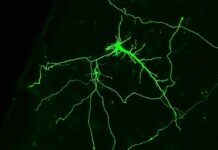Nanotechnology is a field that involves the manipulation of matter at the molecular and atomic scale. This technology has the potential to revolutionize many industries, from medicine to electronics to energy. In this article, we will explore the power of nanotechnology and the impact it is making in the world.
What is Nanotechnology?
Nanotechnology involves the study and manipulation of materials at the nanoscale, which is defined as one billionth of a meter. At this scale, materials exhibit unique physical, chemical, and biological properties that differ from their bulk counterparts.
Nanotechnology is a multidisciplinary field that involves the use of physics, chemistry, biology, and engineering to create new materials, devices, and systems. Some of the most promising applications of nanotechnology include drug delivery systems, sensors, energy production, and electronics.
Applications of Nanotechnology
-
Medicine
One of the most promising applications of nanotechnology is in medicine. Nanoparticles can be used as drug delivery systems, allowing for targeted and precise delivery of drugs to specific areas of the body. This can reduce side effects and improve the efficacy of treatments.
Nanotechnology is also being used to develop new diagnostic tools and imaging techniques. For example, nanoparticles can be engineered to bind to specific molecules or cells, allowing for early detection of diseases such as cancer.
-
Energy
Nanotechnology is also being used to improve energy production and storage. Nanomaterials can be used to improve the efficiency of solar cells and to create new types of batteries and energy storage devices.
Nanotechnology is also being used to develop new materials for energy production, such as nanotubes and nanowires. These materials have unique electrical and mechanical properties that make them ideal for use in energy production.
-
Electronics
Nanotechnology is also revolutionizing the electronics industry. Nanomaterials are being used to create smaller and more efficient electronic devices, such as transistors and memory chips.
Nanotechnology is also being used to develop new types of sensors, such as biosensors and gas sensors. These sensors have the potential to revolutionize industries such as healthcare and environmental monitoring.
-
Environmental Remediation
Nanotechnology is also being used to address environmental problems such as pollution and water purification. Nanomaterials can be used to remove contaminants from water and air, and to create new materials for environmental remediation.
For example, nanoparticles can be used to remove heavy metals from water, or to break down pollutants in soil. Nanotechnology is also being used to create new materials for energy-efficient buildings and transportation systems.
Potential Risks and Ethical Considerations
While nanotechnology offers many exciting possibilities, there are also potential risks and ethical considerations that must be addressed. Some of the potential risks of nanotechnology include:
-
Environmental Impact
The impact of nanotechnology on the environment is not yet fully understood, and there are concerns about the potential for nanoparticles to accumulate in the environment and harm ecosystems.
-
Health Risks
There are also concerns about the potential health risks associated with exposure to nanoparticles. While the risks are not yet fully understood, it is important to consider the potential health implications of exposure to these materials.
-
Equity and Access
There are concerns that nanotechnology could exacerbate existing social inequalities, particularly if it is only available to those with the means to pay for it. It is important to ensure that access to nanotechnology is equitable and that it is not used to further marginalize vulnerable populations.
-
Regulation
The use of nanotechnology raises questions about regulation and oversight. It is important to establish clear guidelines for the use of nanotechnology in order to ensure that the technology is used safely and ethically.
Conclusion
Nanotechnology has the potential to revolutionize many industries, from medicine to electronics to energy. It offers exciting possibilities for improving human health, addressing environmental problems, and creating new materials and devices.
However, as with any new technology, there are potential risks and ethical considerations that must be addressed. It is important to proceed with caution and carefully consider the potential risks and benefits of nanotechnology.
By prioritizing transparency, equity, and responsible use of nanotechnology, we can ensure that this powerful technology is used to benefit all of humanity, while respecting the complex and intricate processes that govern our world at the molecular scale.
Google News | Telegram
















